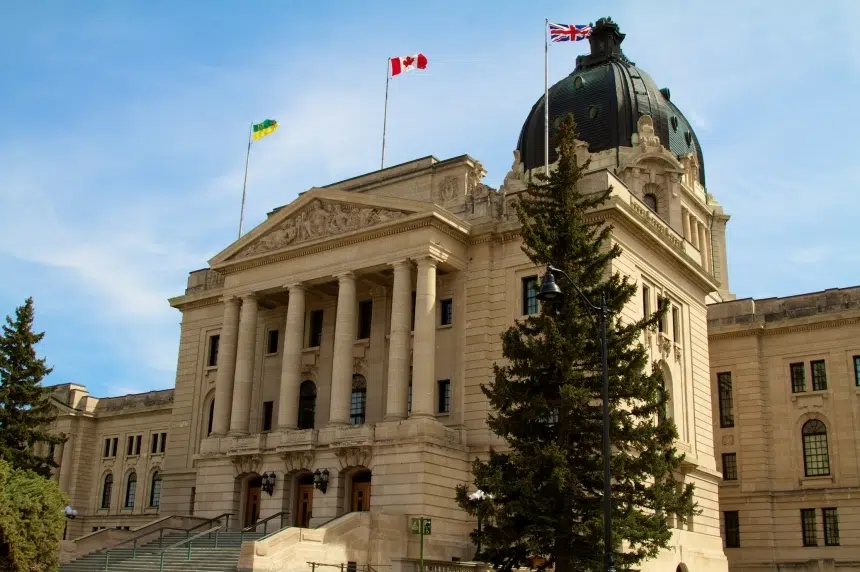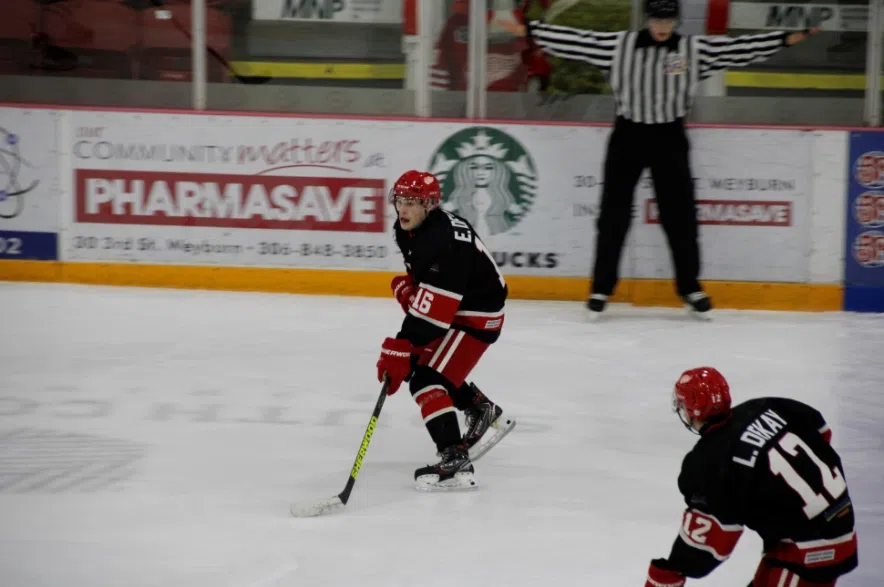This session has been very different than almost any before it in Saskatchewan: plastic barriers in the Chambers between MLAs, many wearing masks, and a limit on the number of people in the chambers at one time.
The pandemic also took a particular toll this spring as most of the MLAs spent the entire six weeks in Regina, respecting the travel advisory for Regina.
Ryan Meili was among those eager to head home on Friday. He hasn’t seen his kids for the six weeks.
“I am just so eager to go pick up Gus, who’s three, and has had a hard time understanding where his dad’s been for six weeks,” Meili paused with some emotion in his voice.
“And seeing my older son Abraham, he’s going to be really excited to see me.”
Meili said that was the toughest part of the changes.
Premier Scott Moe also admitted it had been challenging, though he said he hadn’t been home for much longer than six weeks. But Moe said what he was going through paled in comparison to what other people in Saskatchewan have been going through in the pandemic, and even his fellow party members.
“Many of my colleagues, they have kids at home that they haven’t been able to see for a period of time,” said Moe.
“We’ve had caucus members who have lost family members throughout this pandemic. What little contribution I make is nothing to what so many other Saskatchewan people have done.”
Both sides agreed to a compressed sitting this spring of six weeks instead of eight, in part to reduce the time members would have to be away from their families.
Highlights
Moe said releasing the Re-opening Roadmap was a highlight for the session.
“Achieving that first phase, most certainly, and seeing Saskatchewan people respond by going out and getting their vaccines most certainly is a highlight for me and a highlight for the government,” said Moe.
The premier also pointed to the spring budget as a positive and said, for him personally, the effort coming from his caucus and the relationships that were built were highlights as well.
“It’s a joy for me and a complete honour to come to work with them every day,” said Moe.
On the other side of the chamber, Meili said immediately that one of his highlights was the passing of Doyle Vermette’s suicide prevention strategy bill.
“It took three times before this government would finally admit that we had enough of a problem we needed legislated strategy,” said Meili.
“I’m not sure who the movers and shakers were on (the Sask. Party) side that convinced the higher-ups to go for it, but I’m really happy that they did.”
Meili also said he’s been “super impressed” with the new members of his caucus – he said they’re doing a great job at a time when they have to do their caucus meetings online.
Lowlights
For both sides of the assembly, COVID was a big part of their low points for the session.
Meili said the lowlight to him was the situation the province ended up in with COVID-19 and how avoidable he feels it was.
“We’d done so well in the lead-up to the fall but unfortunately the premier, I don’t know if he thought he’d already fixed it? I don’t know if he was just using magical thinking, but he refused to take the steps that were necessary to prevent that second wave and to prevent the third wave with the variants,” said Meili.
Meili’s criticism of Moe got quite sharp at times in the chamber but when asked about it outside the chamber, Meili doubled down.
“Scott Moe’s choices have killed Saskatchewan people and I don’t think anyone should forget that. He made political choices that put people’s lives at risk and lives were lost because of things Scott Moe failed to do,” explained Meili.
Moe also points to COVID as a lowlight, but his was the tragic results of the virus in the pain it caused families and loved ones.
“As COVID cases go up, there are families that are struggling through some of the most severe consequences that COVID brings with it … Not just through this past session but throughout the course of the past year, some of the toughest days are those days when you speak with families that have experienced the ultimate consequence of COVID,” said Moe.
The premier said that had been the most challenging thing for him the past year.
Theme of the session
As with the rest of life right now, the pandemic was the driving theme of much of the discussion in the chamber. Nearly every day, Meili questioned the government’s handling of the pandemic in Question Period.
“It is the defining moment of this generation,” explained Meili.
“How we dealt with this and what does this say about our existing health system, education system, our approach to employment, the way we make sure people have what they need to make ends meet, was all really put under the microscope by COVID-19.”
Meili said it’s really important to him that they get past the pandemic, but also that we learn from it and build a better future.
The answers given to Meili’s questions weren’t always straight and, by the end of the spring sitting, were getting almost hostile to the use of words like “failure”.
Moe said the NDP has just been campaigning.
“We don’t have that luxury nor do we have that intent. What we are doing is governing on behalf of the people of this province,” said Moe.
Moe pointed to the Re-opening Roadmap and the vaccination effort as examples.
“We were elected to govern the people that we represent from corner to corner in this province, we most certainly have been focused on that throughout the session, and I won’t say too much about what the opposition was focused on,” said Moe.
Many MLAs headed back to their home constituencies on Friday and the parties will continue their work over the summer, before coming back to Regina in fall for the next sitting.







